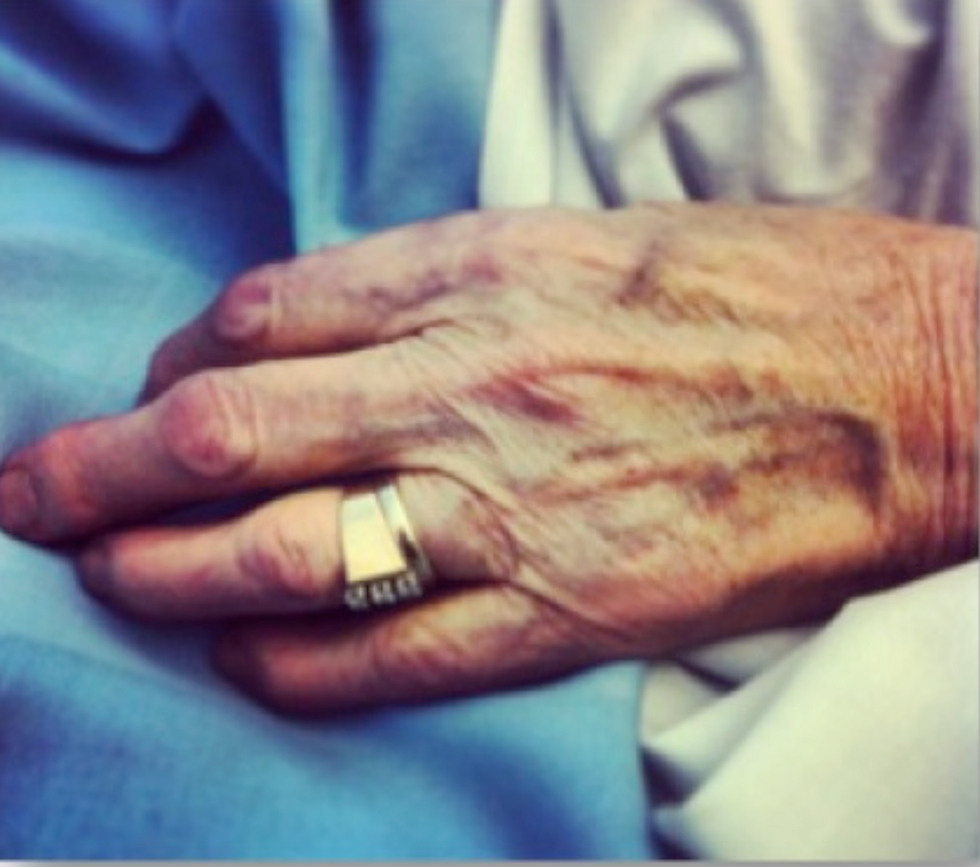There’s Got to Be a Better Way: Punking Health Care
- Sue Robins

- Aug 7, 2022
- 4 min read

There is a genre called solarpunk that is a creative way of describing a future state of the world where humanity has succeeded in tackling the climate crisis and people live with respect alongside nature. It is a low-tech world that also embraces technology. It began as an art movement to counter the bleak dystopian tales to bring some beauty and light for our future. Writers and the artists can help us hope, if only we would listen.
Let us apply this solarpunk philosophy to the health care world. I challenge you to imagine the New Health Care World you want to see.
I’ve written down the elements I want to see in the New Health Care World. I’m no expert on social determinants of health or health policy, but from my layperson point of view, there is much we can do to create this world today.
In the Community
Walkable neighbourhoods, tree shade, parks, public bathrooms, outside seating/eating options
Safe Supply for All
Housing for All – subsidized, coop housing, landlords are regulated, rent control
Free public transit
Cities built for pedestrians and cyclists, not cars
Electric Vehicles only, with EV rebates and charger infrastructure
Universal Basic Income for All
Tax the Rich
Affordable and accessible organic and local food for All
Community Centres built in true consultation with the community – contains daycares, recreation centres, art classes, mental wellness groups, walking groups, social groups, education, cooking classes – not just for seniors, but for disabled people and parents at home with kids – provides drop off respite so caregivers can take classes
Mobile + Health Outreach Centres – pharmacists, Nurse Practitioners, dieticians, mental health professionals, labs/DI, physicians, peer support are all in one local centre
Patient Care is About Outreach
Options are offered so patients can choose to have a virtual, home or in-person appointments
Home visits/house calls, including care, prescriptions and vaccines that are administered door to door
When you are sick, someone drops off groceries and supplies for you and checks up on you
Paid sick and disability time for all, including people who are self-employed so you can stay home and be supported while sick
Gentle approach based on palliative to all health care – focus on healing, spirituality, patient comforts
New Family Support
Pregnancy care is offered in-home, at flexible hours
Birthing Centres are built nearby hospitals and offered as a less institutional option to pregnant people
Celebrate the birth of all babies, moms get a helper for the first two weeks, an assortment of local mom/dad/baby groups, 24-hour breastfeeding support, home visits by nurses, instant clinician access for post-partum care (mastitis, bleeding), easy options for respite + help with house, grocery shopping, etc
Care for the Caregivers
Retreats – for patients + caregivers
Care for the caregivers – respite, free mental health support, help with other family members, connection with peer support
Easier way to recruit and hire workers
Multicultural health broker model – a no-barrier, no-gatekeeping health care guide for people who need one
Power to the Patients
Patients are believed
Patient’s stories are listened to and taken seriously during the diagnosis process
Decisions at point of care or organizationally are led by patients in collaboration with the professionals
Paid patients engage with other patients in decision-making – strategy, policy, operations, system change
Patient and staff feedback is welcomed and used to continuously improve quality
Patients contribute to their own charts and patient information is freely shared with patients
Supportive Housing
Long term care and mental health care– de-institutionalize - people live in small villages with meaningful work and supports
Disabled housing – diverse options for supportive living communities
Beyond Traditional Medicine
Learn from Indigenous ways of knowing and apply to practice
Pet Therapy
Art Therapy
Music Therapy
Healing arts – massage, meditation, mindfulness, writing groups, art groups are easily accessible to all
Have a strong peer support element so it is the community that helps each other
Health Faculty Education
Disabled kids are included fully throughout school so students heading to health care get to know people who are different than them
Health faculty programs recruit for qualities other than grades – including demonstrated anti-racism and anti-ableism attitudes
Patients are paid to teach health faculty students
Hospitals
Hospitals are considered the last resort for those who are very sick – care is first given at home and in the community, not in the Emergency Department
Hospitals are welcoming places, beautiful healing spaces with water, music, visual art, patient comforts, healthy food choices, private rooms, quiet environments, mental health supports for patients and staff, step down units where to help patients and caregivers ready to go home, on-site childcare for patients/caregivers and staff
Offer many local options with extended hours for sick or injured people: primary care, first aid, non-urgent care, urgent care, emergency
Hospitals are inclusive workplaces – they hire and train staff who are disabled or chronically ill
I offer this list as a jumping point for conversation. If a point speaks to you, please think, write, or make art about it. There are no wrong ideas. You can create your own New Health Care World if you don’t like mine. The only rule is to not ruminate in the problem or debate what I've said, but instead describe what you want to see.
If I punked health care, the new world would be rooted in people and caring, not corporations and efficiency. The present is bleak enough; now is the time to imagine a better way.
I've written about many of these concepts in my first two books. If you'd like to hear more + attend my mini-workshop in health advocacy? Express your interest here.





Comments